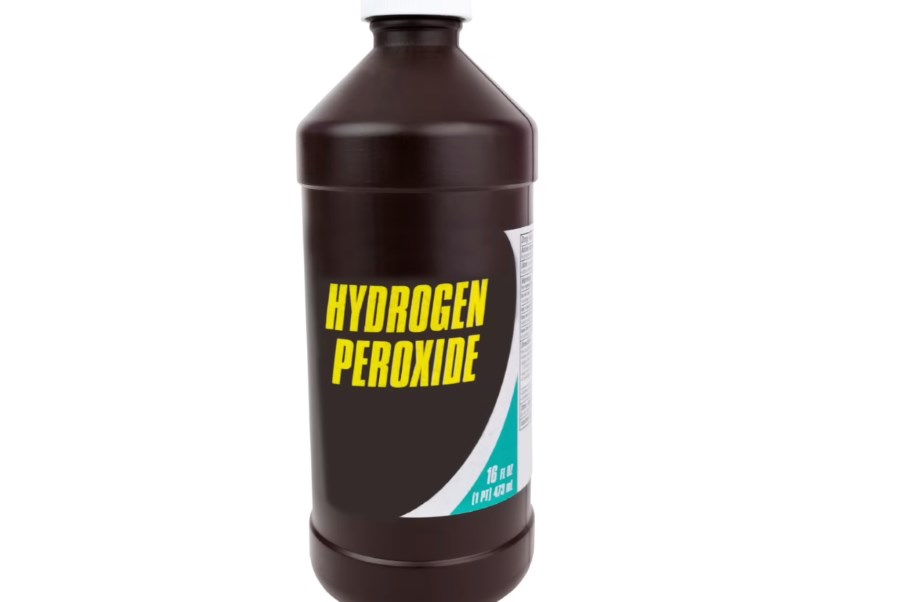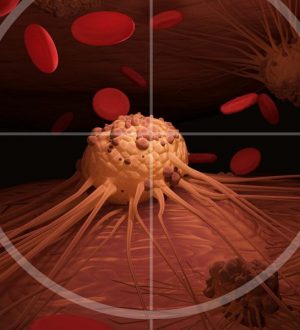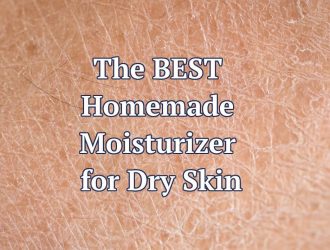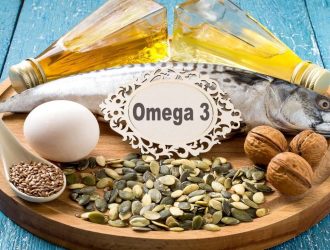
What is the number 1 non-toxic vegetable wash? The answer is hydrogen peroxide. Hydrogen peroxide is H2O2, and it breaks down into water and oxygen. In our body actually makes it. Our immune cells, called phagocytes, actually make hydrogen peroxide as a defense mechanism. That’s one of the weapons that they use to kill off pathogens.
So the unique thing about hydrogen peroxide is, that it can kill off microbes, and it can remove to a very large degree the chemicals, that kill off microbes, like insecticides, fungicides, herbicides and pesticides. Hydrogen peroxide has the ability to degrade and get rid of the chemicals and the microbes.
The problem with being exposed to these poisons is, that they’re fat soluble, and they get locked into our fat cells, into our organs, into our neurological tissue and our brain. And even if you’re doing organic vegetables, they still use some form of pesticide or herbicide, or fungicide. It’s obviously not as toxic, but sometimes they use certain things. So hydrogen peroxide is a really good solution.
Contents
Hydrogen peroxide vs. food grade hydrogen peroxide
The thing you need to know about hydrogen peroxide is, you have food grade, and you have regular hydrogen peroxide. You shouldn’t get the regular hydrogen peroxide. That would be something that do sell at the drugstore.
The problem with that is, they add stabilizers and probably about roughly around four chemicals that to help stabilize hydrogen peroxide. Those are toxic, so we don’t want those residues in our food. You want to get food grade. But the thing about hydrogen peroxide is that it is very unstable. It doesn’t last a long time. If you actually buy hydrogen peroxide, it may last six months, then eventually breaks out into water in oxygen.
How to use hydrogen peroxide as a vegetable wash
When you buy the food grade, sometimes it comes in 35% concentration. You’d want to get the one that actually is 3% because 35% is very concentrated. So you’d have to dilute that and then dilute it again before using it in this wash. If you just buy the three percent, it’s going to be a lot easier.
Then you’re going to dilute this by a ratio of one-fourth of a cup of food-grade hydrogen peroxide to one gallon of water. Then you can soak your vegetables in there for about 20 minutes. And then you can dry them out and you can store them in the refrigerator.
Other uses for hydrogen peroxide
- Hydrogen peroxide can be used for a lot of different things.
- A mouthwash. That can be used to help remove tartar because it kills biofilms. That’s plaquing on your teeth.
- Some people use it as a deodorant
- You can use it as a disinfectant to clean your counter or cooking surfaces, for example.
- It’s good for ear infections, sore throats.
- You can gargle with it acne, athlete’s foot.
- Hydrogen peroxide is a very good thing to use because when you apply it correctly, it can be very non-toxic and
- your body makes it, gets rid of microbes and the chemicals that actually kill microbes.
Natural pesticides
When people have an insect problem or some ant problem, they call a local company that comes out, and then sprays either the inside of their house, or the outside of their house. And a lot of people don’t even think twice of what’s happening. They’re actually spraying these deadly chemicals, and they’re usually in this fully protected suit spraying this chemical inside your house or outside your house.
These poisons can be carcinogens. A lot of people do it and they don’t even think twice. So the next time you actually consider doing you should find out what type of spray they’re using, and you do the research, do a really good deep dive and find out what they’re spraying to make sure that you want that around your house. Of course, it will kill insects, but it can linger for months and months before it breaks down.
There are some very natural good non-toxic things to use, if you have pests around your house or in your garden. Neem oil is a really good one. You can use diluted vinegar; you can use castile soap diluted. One teaspoon in a quart of water works really good. This helps dissolve the membrane of the microbe. You can also use diatomaceous earth. And this is a really good non-toxic way of killing microbes around your house.





